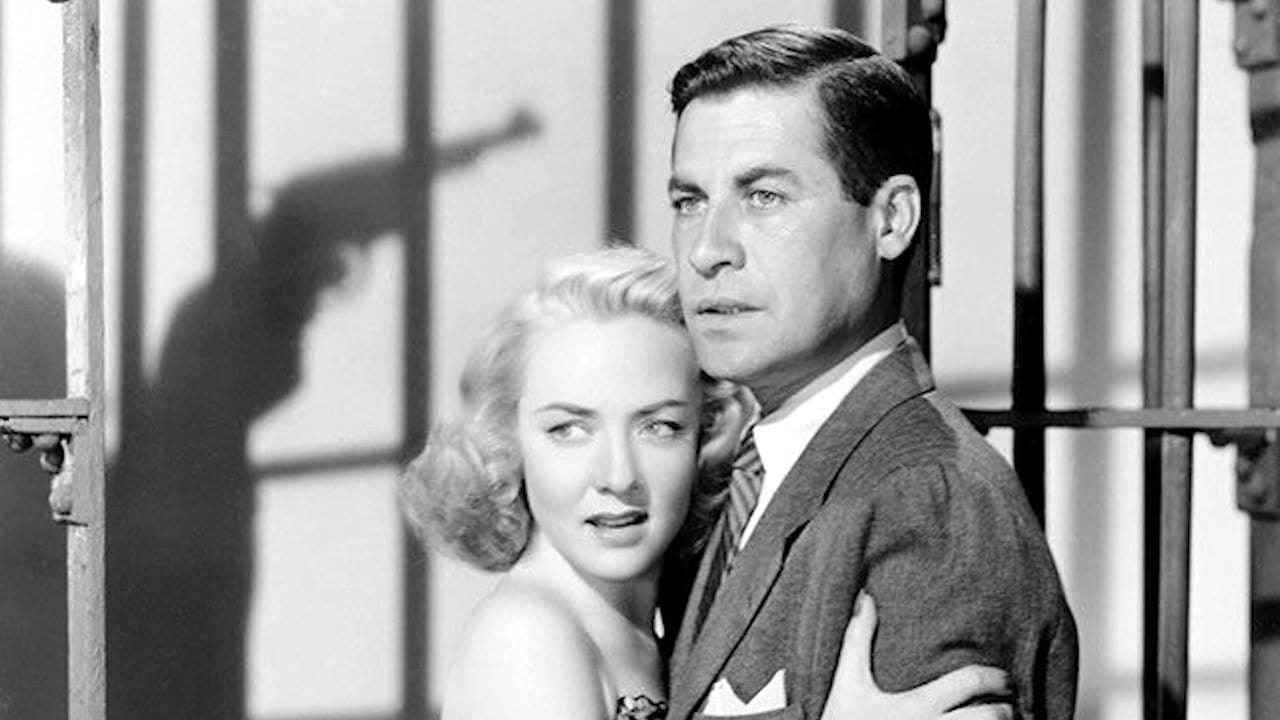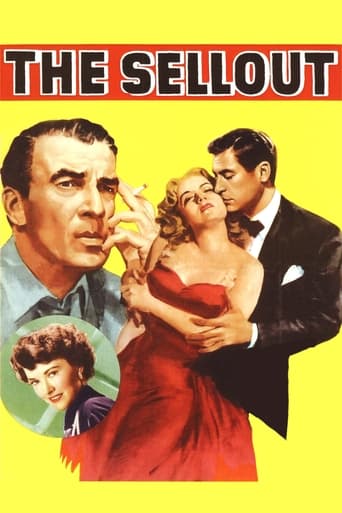AboveDeepBuggy
Some things I liked some I did not.
Catangro
After playing with our expectations, this turns out to be a very different sort of film.
Rio Hayward
All of these films share one commonality, that being a kind of emotional center that humanizes a cast of monsters.
Cody
One of the best movies of the year! Incredible from the beginning to the end.
joe-pearce-1
This was something of a frustrating film, as although peopled with solid actors of reasonable note, it gives much evidence of being a holdover from the early talkie days of B films that ran about 62 minutes and left miles of storyline on the cutting room floor or just not filmed at all. At 83 minutes, it didn't have to be this way, but the films jumps days and weeks, and important events and storylines are mentioned after they have taken place offscreen and almost as an afterthought. For example, at one point, Hodiak mentions that 43 of 55
witnesses have reneged on their statements and/or on their willingness to testify, but that 43 number comes out of the blue after we have seen only one witness express some trepidation.I should also add that much in this story seems reflective of my own experience. When I was in the army (1963-1965) a decade after this film, and stationed in Western Maryland, when driving there from New York, we were picked up more than once by police for speeding, having a light out, whatever, and instructed to drive behind the police vehicle to one of several (what looked like) county stores that had a set up in the back where someone (probably a minor judge) seemed to sit all night, just waiting for the cops to bring in miscreants like ourselves so that he could fine us $15 or $20 before sending us on our way. And this is how they treated the U.S. military ($78.11 a month pay). I can't imagine how others might have been treated (but certainly not as badly as in this film, I hope). Anyway, the performances are all solid. Pidgeon kind of disappears a bit less than halfway through the film, and from that point on the real stars seem to be Hodiak, Malden, Gomez, Sloane and the always-excellent Audrey Totter, until Pidgeon comes back in near the end. The final courtroom scene holds the interest, and both Hodiak and Hugh Sanders (as the good judge and in, given its relative brevity, probably the best role he ever had; he gets to make the longest speech in the film) do well in it, but I was surprised to see Karl Malden billed 7th or 8th considering that he had just won a Supporting Actor AA for STREETCAR and, quite honestly, his is one of the larger roles in the film. And Frank Cady has maybe his best screen role, far larger than in the same year's HIGH NOON. Cameron Mitchell, in one of his first films, also doesn't have much to do, but his character is pivotal to the story. All in all, an enjoyable little crime drams with a lot of holes in it, saved by the performances.
vincentlynch-moonoi
I disagree with the general trend of reviews for this film. I think it's a very strong film. However, it has the feel of a small film...but I think that's what was required here because it's a film about a very small town. Small town -- small film. That's a match.At first glance, it looks as if the plot is going to be pretty simple. Newspaper editor is arrested in a small hick town on false charges and will lead a crusade to clean up the town. Until he uncharacteristically steps back and decides to leave his town completely. Huh? Walter Pidgeon running away? Fortunately, someone takes up the crusade -- but not Pidgeon's son-in-law, a county prosecutor. Hmmmm. A family that has high ideals until they're put to the test? But someone has to lead the charge. So that falls to John Hodiak, a state prosecutor. And he faces a brick wall because everyone is afraid to testify against the small town thugs.Will the newspaper editor testify? And if not, why not? Today's audiences may not believe that there were places like this back before the 1960s. People did sometimes virtually disappear.Walter Pidgeon is quite good here as the newspaper editor; I wonder how he liked a film where for at least part of the time he appeared to be a coward. John Hodiak is very good as the state attorney. Thomas Gomez is good...and disgusting...as the crooked sheriff. Karl Malden is good as an honest cop.I don't find a lot here to criticize. The ending gets -- as a couple have already said -- a little preachy and too idealistic. And, I think they could have made more earlier in the film about the dilemma facing Walter Pidgeon.I liked it and recommend it.
blanche-2
Walter Pidgeon, John Hodiak, Tomas Gomez, Audrey Totter, Cameron Mitchell, Karl Malden and Everett Sloan all star in "The Sellout," a 1952 film. Pidgeon plays a well-respected newsman, Haven Allridge, who runs afoul of a corrupt sheriff (Gomez). Despite the fact that he and his department have been using violence and other illegal tactics unopposed because people are afraid, Allridge decides to take him down. He uses the power of the press to bring the matter to everyone's attention, and soon an indictment is called for. Since Allridge's son-in-law (Mitchell) works for the court, a special prosecutor (Hodiak) is brought in. Unfortunately, when it comes time for the indictment proceedings, everyone seems to have forgotten what they said previously.This is an okay movie, although predictable, with good performances. It does point out that ethics aren't just for people who have nothing to lose, when it's easy. True ethics are for the tough times, when one is faced with huge losses.Good cast.
John Seal
Dealing with police corruption in a small American city, The Sellout isn't all that far away from films like The Phenix City Story or Kansas City Confidential. Walter Pidgeon plays a crusading journalist trying to get the goods on bent sheriff Thomas Gomez before Gomez gets the goods on him. The MGM cast is solid throughout, including John Hodiak as the reluctant out of town prosecutor, Karl Malden as the policeman assisting him, and good ol' Whit Bissell as a whistleblower. There's a small role for Audrey Totter--whose place in the credits implies a more significant part--and oily Everett Sloane is excellent as the misguided local lawyer. There's not much original here, but the film takes itself seriously and reminds the viewer of a time when it was possible for independent journalism to hang the bad guys out to dry.

